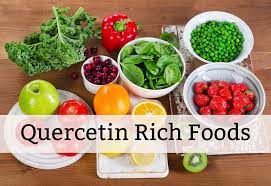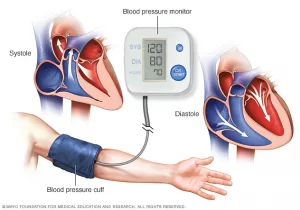What does eczema mean for my diet?
Eczema is an inflammatory skin condition. Also known as atopic dermatitis, it can cause skin irritation, oozing blisters, and itchy rashes. It can also result in leathery skin patches appearing over time.
Eczema is most common in children younger than age 2, but it can also affect older children and adults. Hereditary and environmental triggers may play a role in developing the condition, but its cause isn’t clearly understood. Many children “grow out” of eczema and experience few to no outbreaks as adults.

Skin Eczema-Friendly Diet
Research suggests that an infant may be less likely to develop eczema if their mother takes probiotics and avoids drinking cow’s milk during pregnancy. Infants who exclusively breastfeed during the first three months of their life are also less likely to develop eczema.
Many people who have eczema are also diagnosed with food allergies. However, everyone is different and discovering your personal food needs is important to minimize issues with allergies and eczema. Not everyone will have issues with the foods listed below, but common food allergies associated with eczema include:
- cow’s milk
- eggs
- soy products
- gluten
- nuts
- fish
- shellfish
Eating certain foods doesn’t appear to cause eczema, although it may trigger a flare-up if you already have the condition. Maintaining an eczema-friendly diet is key to overall condition management. Not everyone will have the same reactions or flare ups to the same foods.
In this article, Pritish Kumar gives a list of food that contain properties that may help decrease eczema flare-ups, but getting to know your body and what foods work best for you individually is key.
Are there certain foods that I should eat?
Eating anti-inflammatory foods may help lessen or reduce eczema symptoms. This includes:

Fatty fish
Fatty fish
You may be able to reduce your symptoms by eating fatty fish, such as salmon and herring. Fish oil contains high levels of omega-3 fatty acids, which are anti-inflammatory. You may also consider taking an omega-3 supplement.
In general, it’s recommended that you get at least 250 mg of omega-3 fatty acids daily, preferably from food.
Foods containing quercetin
Quercetin is a plant-based flavonoid. It helps give many flowers, fruits, and vegetables their rich color. It’s also a powerful antioxidant and antihistamine.

Foods containing quercetin
This means it can reduce inflammation as well as levels of histamine in your body.
Foods high in quercetin include:
- apples
- blueberries
- cherries
- broccoli
- spinach
- kale
Foods containing probiotics

Foods containing probiotics
Probiotic foods, such as yogurt, contain live cultures that help support a strong immune system. This may help reduce flare-ups or allergic reactions.
Probiotic-rich foods include:
- sourdough bread
- miso soup
- naturally fermented pickles
- soft cheeses, such as Gouda
- unpasteurized sauerkraut
- kefir
- tempeh
Your best foods depend largely on any food allergies you may have been diagnosed with. Foods considered to be eczema-friendly may trigger a flare-up in those who are allergic to them.
Are there any foods that I should limit or avoid?
What you eat may not directly cause eczema, but it can trigger an increase in symptoms. This is especially true if you eat a food that you’re allergic or otherwise sensitive to.
Common food allergies include:
- dairy products
- eggs
- soy
- nuts
Foods containing preservatives and artificial ingredients may also exacerbate symptoms. This includes foods high in trans fats, such as margarine, processed food, and fast food.
Foods high in sugar may also trigger eczema flare-ups. Sugar causes your insulin levels to spike, which can result in inflammation.
Items typically high in sugar include:
- cakes
- some coffee drinks
- some sodas
- some smoothies
- fast food items, such as burgers
Is there a specific diet plan I can follow?
There isn’t a one-size-fits-all eczema diet, though eating a diet rich in antioxidants may help reduce symptoms. Some eating plans are based on principles that you may find helpful in reducing your

Mediterranean diet
symptoms:
Mediterranean diet
This diet emphasizes eating:
- fruits
- vegetables
- fish
- healthy fats, such as olive oil
It also includes red wine, which contains quercetin.
Sugary desserts and red meat can be eaten in very small quantities or not at all in this diet.
Anti-inflammatory diet
This food plan focuses on eliminating foods that increase inflammation and eating fiber-rich foods. It places a strong emphasis on:
- fruits
- vegetables
- whole grains
- healthy fats, such as olive oil
- fish, which are high in omega-3 fatty acids
Chemically-laden processed foods aren’t included in this food plan.
What about the dyshidrotic and elimination diets?
The dyshidrotic and elimination diets are two other diets you might want to consider. The dyshidrotic diet is specifically for those with dyshidrotic eczema. The elimination diet may help those who don’t know what their eczema triggers are.
Dyshidrotic diet
Dyshidrotic eczema is characterized by tiny blisters on your hands and feet. Like other forms of eczema, its cause is unknown. Allergens, including food allergens, may influence flare-ups.
Nickel and cobalt may exacerbate symptoms of dyshidrotic eczema. The dyshidrotic diet involves avoiding foods that contain these elements to help reduce outbreaks.
Nickel and cobalt may be found in:
- whole wheat
- whole grain
- rye
- oat
- cocoa
- baking powder
- soy products
- dried fruits
- chickpeas
- canned foods
Foods high in vitamin C can help reduce absorption of these elements, so eating plenty of fresh fruits and vegetables may also help. This includes:
- bell peppers
- kale
- oranges
- strawberries
- cauliflower
- pineapple
- mango

Elimination diet
Elimination diet
The elimination diet is recommended for people who have diagnosed food allergies. If you aren’t sure what your eczema triggers are, trying the elimination diet may or may not reduce flare-ups.
There are many triggers for eczema outside of what you eat, including stress, topical products, and the environment. This may make it harder to determine what’s causing your outbreaks.
If you wish to try the elimination diet, start by removing specific foods or food groups from what you eat for at least three days to see if your flare-ups subside. For best results, try removing one specific food or food group at a time.
Would eating gluten-free foods help?

gluten-free foods
For some people, celiac disease and eczema seem to go hand-in-hand. This may be due to the genetic link that both disorders have. Celiac disease is treated by removing gluten from the diet. If you have celiac disease or gluten sensitivity in addition to eczema, you may see a real improvement in your skin if you eliminate gluten.
Gluten-free food has become very popular, and many foods are now labeled as gluten-free. Most wheat, rye, and barley products also have gluten-free substitutes you can buy. A little imagination goes a long way here. For example, you can use potato flakes instead of bread crumbs to coat chicken cutlets, and almond flour instead of wheat flour for baking.
Probiotics
The strength of your immune system largely depends on the health of your gut. In fact, 70% to 80% of the cells that make up your immune system are located in the lining of your gastrointestinal tract.7

Probiotics
So it follows that, by improving your gut health, you may be able to give your immune system the boost it needs to fight inflammation caused by food allergens.
One way to keep your gut bacteria balanced is to take probiotic supplements or consume probiotic foods and beverages. Probiotics are live bacteria and yeasts that promote healthy digestive function. They are sometimes called “friendly bacteria” because they are safe and healthy to consume.
Probiotics are also safe for infants and pregnant or lactating women.
One study found that infants who took probiotics during their first year of life were less likely to develop eczema later on.8Another study found that giving a pregnant or lactating mother probiotics that contain strains of Bifidobacterium can reduce the risk of her child developing eczema.
With that said, the National Eczema Association states that more studies are needed to determine which kinds of probiotics are most helpful, and the best way to use them.
Reference
- https://www.healthline.com/health/skin-disorders/eczema-diet#dyshidrotic-and-elimination-diets
- https://www.verywellhealth.com/what-to-eat-when-you-have-eczema-4692428#toc-probiotics










